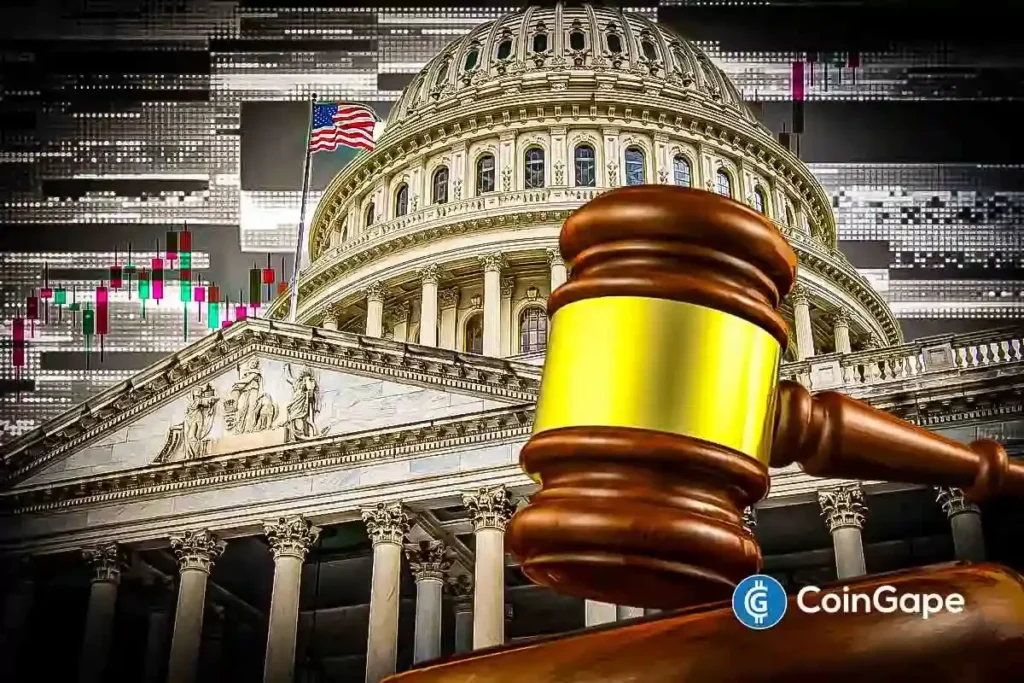New DeFi Regulations Proposed by Senate Democrats: Impact on Crypto Market Structure
Senate Democrats have recently put forward new decentralized finance (DeFi) regulations aimed at being integrated into the crypto market structure bill, known as the CLARITY Act. This move has resulted in significant friction between Senate Democrats and Republicans, effectively halting bipartisan negotiations. The proposals initiated by the Democrats contrast sharply with Republicans’ earlier drafts, which included provisions meant to protect software developers operating in the DeFi space.
Implications of New DeFi Regulations
One of the most controversial aspects of the Senate Democrats’ proposal is the classification of anyone deploying a DeFi protocol as an intermediary. This definition could strip away crucial protections that Senate Republicans had sought for software developers. Developers—often seen as facilitators of node networks—could potentially be prosecuted under charges related to operating an unlicensed transmitting business, per regulations that date back to the 1960s. Such a drastic shift would not only create legal uncertainty but also stifle innovation, as many creators may reconsider launching DeFi projects under the looming threat of regulatory repercussions.
KYC Mandates and Its Repercussions
Additionally, the Democrats’ new proposal mandates that front-end providers implement Know Your Customer (KYC) procedures. This requirement suggests that developers, regardless of whether they control the assets within a protocol, would need to gather customer data and conduct rigorous surveillance to deter illicit financial activities. Such measures may be viewed as contradictory to the decentralized ethos of DeFi, where anonymity and user autonomy are paramount. The mandatory data collection could create substantial barriers to entry, especially for small developers who lack the resources to comply with strict regulatory regimes.
Increased Regulatory Authority for the U.S. Treasury
The proposed regulations also grant the U.S. Treasury increased power to oversee DeFi protocols, permitting the agency to define “sufficient influence” within these decentralized systems. This broad authority means that the Treasury could effectively regulate anyone deemed to have significant sway over a protocol, leading to an ambiguous and potentially arbitrary enforcement of regulatory measures. Further complicating matters, the Treasury would be vested with the authority to establish a “restricted list” of DeFi protocols deemed excessively risky. Interacting with such protocols would be met with criminal charges, raising serious concerns about user privacy and freedom.
The Stalemate in Bipartisan Negotiations
The introduction of these austere regulations has caused a standstill in bipartisan discussions regarding the CLARITY Act. The controversy surrounding the new DeFi provisions has stalled the markup phase of the crypto bill, further compounding delays caused by the recent U.S. government shutdown. Analysts fear that continued impasses may prevent the passage of comprehensive crypto regulation within this fiscal year, elongating uncertainty in an arena desperately in need of clear guidelines.
Expert Opinions on the Fallout
Legal experts, including Jake Chervinsky, Chief Legal Officer at Variant Fund, have criticized the senators’ actions, stating that they appear to undermine the crypto industry under the guise of regulatory oversight. Chervinsky goes so far as to assert that the Democrats’ proposals represent not just a form of anti-crypto sentiment, but an assault on innovation as a whole. He emphasizes that the current proposals resemble a “government takeover” of an entire sector, setting a troubling precedent not just for cryptocurrency but for technological advancement across industries.
Conclusion: Future of DeFi in Uncertain Waters
As the debate continues, the future of decentralized finance remains uncertain. With strict regulations on the horizon, developers must navigate an increasingly complex and potentially hostile regulatory landscape. The clash between Senate Democrats and Republicans signals a pivotal moment in the evolution of crypto legislation, one that will undoubtedly affect the trajectory of innovation and investment in DeFi. The outlook for the CLARITY Act and its impact on the overall crypto market structure will depend heavily on the ability of lawmakers to bridge their differences and establish a balanced regulatory framework that fosters growth while ensuring security and compliance. Staying informed and actively participating in discussions surrounding these developments is crucial for stakeholders invested in the future of decentralized finance.


